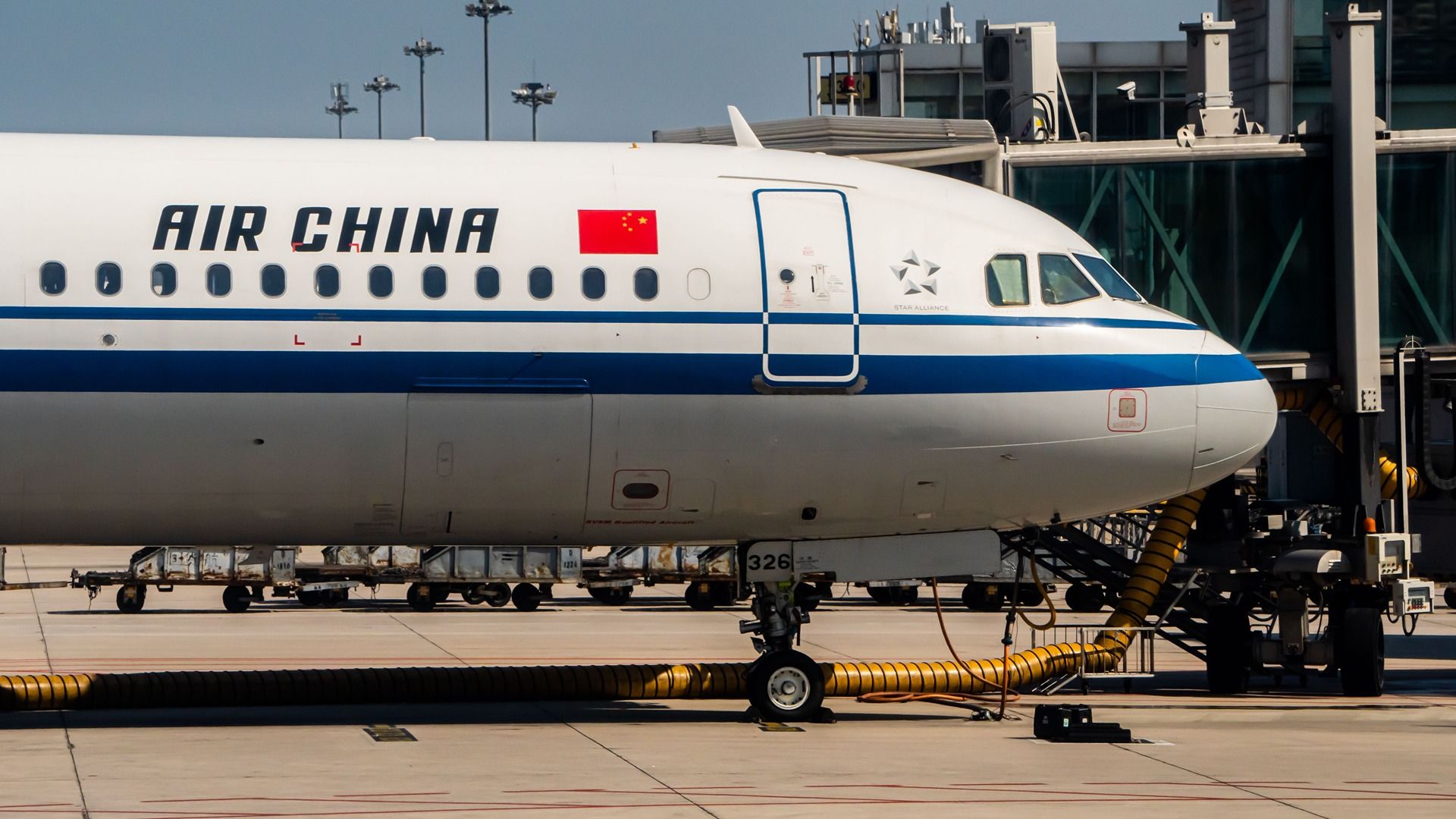World
Air China A321 Diverts to Shanghai After Lithium Battery Fire

An Air China Airbus A321-200, operating flight CA139, made an emergency landing at Shanghai Pudong International Airport (PVG) on October 18, 2025, following a fire caused by a lithium battery in a passenger’s carry-on luggage. The aircraft, en route from Hangzhou Xiaoshan International Airport (HGH) to Seoul Incheon International Airport (ICN), landed safely approximately 40 minutes after takeoff, with no injuries reported among the 185 passengers and crew onboard.
The incident occurred around 20 minutes into the flight when a lithium battery in the overhead compartment overheated and ignited. According to Air China, the cabin crew quickly contained the fire, prompting the flight crew to divert to the nearest airport. In a statement posted on the Chinese social media platform Weibo, the airline confirmed, “On October 18, on flight CA139 from Hangzhou to Incheon, a lithium battery in a passenger’s carry-on luggage stored in the overhead compartment spontaneously ignited.”
Aircraft Status and Passenger Arrangements
Following the emergency landing, the affected Airbus A321-200, registered as B-8583, was grounded at Shanghai Pudong International Airport for safety inspections. This aircraft, part of Air China’s fleet for 8.3 years, typically accommodates 185 passengers in a two-class configuration, with 12 seats in business class and 173 in economy. As of July 31, 2025, it had logged over 20,500 flight hours across nearly 9,500 flight cycles.
To accommodate the stranded passengers, Air China arranged an alternative flight to Seoul using another Airbus A321-200, registered B-6883. This replacement aircraft successfully reached its destination, arriving at 17:34 local time, significantly later than the original scheduled time of 12:20.
Regulatory Changes in Response to Fire Risks
In light of this incident, Air China’s emergency landing adds to a growing list of concerns regarding lithium battery safety in air travel. Many airlines in the Asia-Pacific region have revised their policies on transporting lithium batteries, particularly power banks and spare batteries, due to fire hazards. This shift was prompted by a similar fire incident involving an Air Busan aircraft at Gimhae International Airport (PUS) earlier in 2025.
Effective March 1, 2025, South Korea implemented stricter regulations requiring passengers to keep power banks and e-cigarettes with them rather than storing them in overhead bins. Additionally, charging devices onboard have been banned. Thai Airways announced a similar ban, effective March 15, 2025, preventing passengers from charging power banks during flights while still allowing them to carry these devices in hand luggage. AirAsia and Singapore Airlines have also adopted comparable measures, reinforcing the industry-wide response to lithium battery fire risks.
As airlines continue to navigate the challenges posed by lithium batteries, the Air China incident serves as a reminder of the importance of maintaining strict safety protocols in aviation.
-

 Business5 months ago
Business5 months agoKenvue Dismisses CEO Thibaut Mongon as Strategic Review Advances
-

 Lifestyle4 months ago
Lifestyle4 months agoHumanism Camp Engages 250 Youths in Summer Fest 2025
-

 Sports4 months ago
Sports4 months agoDe Minaur Triumphs at Washington Open After Thrilling Comeback
-

 Sports5 months ago
Sports5 months agoTupou and Daugunu Join First Nations Squad for Lions Clash
-

 Top Stories5 months ago
Top Stories5 months agoColombian Senator Miguel Uribe Shows Signs of Recovery After Attack
-

 World5 months ago
World5 months agoASEAN Gears Up for Historic Joint Meeting of Foreign and Economic Ministers
-

 Health4 months ago
Health4 months agoNew Study Challenges Assumptions About Aging and Inflammation
-

 Business5 months ago
Business5 months agoOil Prices Surge Following New EU Sanctions on Russia
-

 Entertainment4 months ago
Entertainment4 months agoDetaşe-Sabah Violin Ensemble Captivates at Gabala Music Festival
-

 Entertainment4 months ago
Entertainment4 months agoBaku Metro Extends Hours for Justin Timberlake Concert
-

 Top Stories5 months ago
Top Stories5 months agoRethinking Singapore’s F&B Regulations Amid Business Closures
-

 Business5 months ago
Business5 months agoU.S. House Approves Stablecoin Bill, Sends to Trump for Signature









